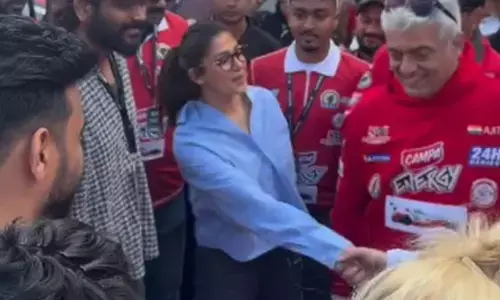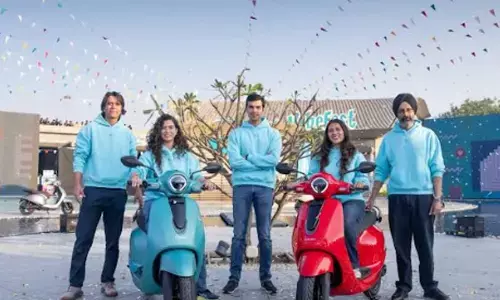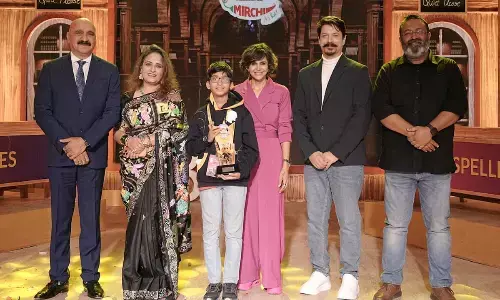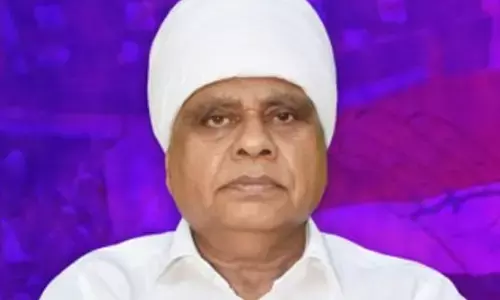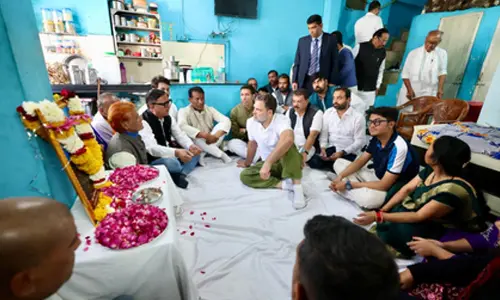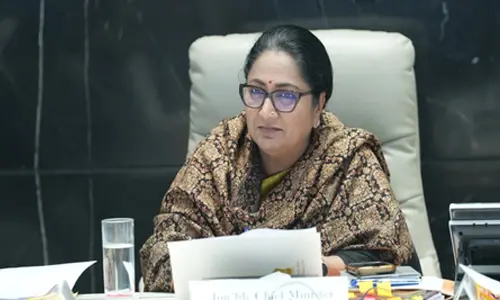For Rahul Gandhi, ground reality a far cry from ideals

For Rahul Gandhi, Ground Reality A Far Cry From Ideals. As Rahul Gandhi emerged from his cloistered existence into the big, bad world via his first television interview, he must have realized that the ground reality is a far cry from his idealistic concepts.
As Rahul Gandhi emerged from his cloistered existence into the big, bad world via his first television interview, he must have realized that the ground reality is a far cry from his idealistic concepts.
Even as he sought refuge in his pet themes of the right to information, women's empowerment, opening up of the closed political system et al, he faltered on the questions of the 1984 and 2002 riots, the alliances with Lalu Prasad and M. Karunanidhi and inflation, among others.
Moreover, he gave the impression that he was still overawed by the crusty, cynical warlords of his party, who routinely place expediency over principles. Hence, Gandhi's unconvincing explanation that the Congress' tie-ups with the Rashtriya Janata Dal (RJD) and the Dravida Munnetra Kazhagam (DMK) were with parties and not leaders.
.jpg)
If the reluctant debutant believes that these are not one-man parties, he is being purposefully naive. What he has done, therefore, by drawing an illusory distinction between Lalu Prasad and the RJD is to make a mockery of his earlier bravado when he tore up the ordinance which aimed at saving the RJD leader from the legal consequences of the fodder scam.
Evidently, the seniors in the party, probably led by his mother, Sonia Gandhi, have told him that an opportunistic alliance cannot be sacrificed at the altar of morality. If the episode revealed anything, it is that the shehzada is not as powerful as is commonly believed.
This impression is confirmed by his failure to get his way on the Adarsh housing society scam, where former Maharashtra chief minister Ashok Chavan has escaped the legal noose with the blessings of the party.
Evidently, Rahul Gandhi's fulminations against corruption are for the sake of record at a time when the Aam Admi Party (AAP) has brought the issue to the fore. Gandhi insists that the scamsters will suffer if the pending anti-graft bills are passed by parliament. But he might have scored a more effective point by slamming the alliances with Lalu Prasad and Karunanidhi.
These stumbles are perhaps only the beginning of what may well prove to be even greater blunders if he gives more interviews. It is then that the subjects which were not raised in his first one-to-one interaction with the media are bound to come up.
Foremost among them is the economy. As the celebrated slogan - It's the economy, stupid! - reminded Bill Clinton of what was of major concern to Americans during the 1992 presidential campaign, in India, too, it is the sliding economy which is known to be largely responsible for the dismal prospects of the Congress.
It is also a sensitive topic for the dauphin because it is the Queen Mother Sonia Gandhi's socialism, propagated by her kitchen cabinet, the left-of-centre National Advisory Council (NAC), which is seen to be behind the stalling of the economic reforms. As former NAC member Aruna Roy complained, there was too much emphasis on growth by the government.
How Gandhi will respond to any questions on reforms is not known, but since his views are believed to be largely aligned to those of his mother - after all, he scuttled the bauxite project in Niyamgiri hills and imposed an annual subsidy burden of Rs.80,000 crore by calling on the government to raise the number of cooking gas cylinders for consumers from nine to 12 - he may well emerge as the new votary of the licence-permit-control raj.
He can also come out as someone who is confused, for he claimed, out of the blue, that he wanted India to be a manufacturing hub like China. But how does he square this intention with the belief that the Congress will provide reservations for Dalits and Adivasis in the private sector?
Does he not know that any such move will make industrialists even more reluctant to invest in India. In any event, what are his views on reservations in industries and educational institutions for not only Dalits, Adivasis and the intermediate castes but also the "backward castes" among Muslims even if, legally, Islam does not have a caste system?
It is possible that Gandhi isn't aware of all the nuances or that he hasn't made up his mind on these issues or that he is for the quota system or that he is bowing to the dictates of the crafty seniors as on the question of aligning with political leaders with a tainted image? But any hint of uncertainty is damaging for a possible prime ministerial candidate.
Unfortunately, even his idealism has a trace of disingenuousness, for he cannot expect to break the rigid mould of parties where, as he says, all the decisions are taken by a few, when he himself is at the heart of a closed system. Unless Rahul clears the cobwebs in the mind about the ideological course, he is in trouble.
In this context, one doesn't know if Amartya Sen was showing the way out by suggesting at the Jaipur literary festival that India needs a right-of-centre, pro-market, secular party. The Congress might have been that party but for the kitchen cabinet.









